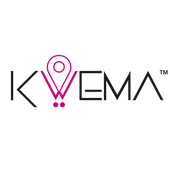As we have discussed in previous blogs, many businesses have faced different challenges in restarting their activities, mainly in planning new safety protocols for the workplace and handling employees' concerns and perceptions about their risk to contract COVID-19 while at work. It can be a hard task if these adjustments are not implemented correctly from the beginning as well as represent a high risk for employee’ safety.
For instance, two weeks ago the MIOSHA reported a group of companies which were not taking appropriate safety measures to protect employees. Inspections found a variety of deficiencies including a lack of health screenings, face masks, employee training to identify potential hazards, cleaning procedures as well as the absence of a COVID-19 response and preparedness plan. Under the MIOSHA “general duty” clause, companies received initial fines of between $2,100 to $7,000 USD.
But in light of recent updates associated with workplace safety specifically for COVID-19, it seems that guidance and recommendations to ensure a safe return to work may turn into law requirements for employers.
Recently, Virginia was the first state to release temporary rules specifically for protecting employees from COVID-19. This new law requires employers to provide protection to their employees based on the risk of exposure to the virus according to the nature of the job. However, employers must comply with a set of safety standards regardless of this classification.
In addition to providing adequate PPE and placing engineering and administrative controls, employers must educate employees on recognition of coronavirus hazards and symptoms of infection, develop and implement policies and procedures for employees to report COVID-19 symptoms and for returning to work, among other standards.
There is no doubt that this can be the first step to legally protect employees from the threat of COVID-19. Another state that is considering implementing temporary rules to address coronavirus spread in workplaces is Oregon. Workplace requirements would include conducting COVID-19 exposure risk assessments, developing and implementing infection plans, ensuring social distancing, mandatory cleaning protocols, and much more.
According to EHS Today, there are 27 other states that operate their own occupational health and safety programs under an OSHA grant. This means that these states might consider to create their own rules regarding COVID-19 protection at the workplace.
Whether other states follow Virginia's path for implementing regulations for COVID-19 in all workplaces, we encourage every employer to maintain a safe workplace environment by implementing efforts to protect employees, customers and visitors from the spread of COVID-19.
In today's era Kwema helps prevent potential COVID-19 outbreaks at workplaces with Contact Tracing functionality. If someone is diagnosed positive for COVID-19, our technology allows you to trace where the employee was, identify who they may have come into contact with and classify all employees into 3 groups of risk and take action to prevent spread.
Watch how Kwema is disrupting workplace safety
Photo by David Mark on Pixabay
What are the best practices to stop COVID-19 transmission?
How can one prevent the spread of the coronavirus disease?
covid 19 rules us
covid 19 rules us workplace safety
